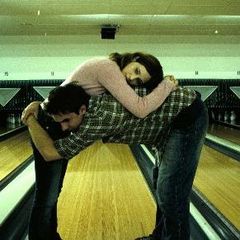
There were three reasons I wanted to see this movie: 1)Rourke as a hitman, 2)Levitt as a hitman, 3)I enjoyed the Elmore Leonard book on which it was based. The first was the only thing that really panned out.
There is really only one redeeming quality to Killshot, and that is Mickey Rourke's subdued hitman. His character is partnered with a loose cannon criminal played by Joseph Gordon Levitt. Levitt is an amazing talent, but he utterly fails at lending authenticity to the larger than life villain. It starts with the accent and continues through to his twitchiness. The character is supposed to be annoying. But I don't imagine he was supposed to be utterly ridiculous. The story, while entertaining in novel form, loses its step on screen. Carmen, the film's heroine played by Diane Lane, is intimately fleshed out in the book, but her character onscreen feels utterly slight and Lane doesn't do her any favors. Likewise Thomas Jane, as her rough and tumble husband, adds to the ridiculousness of the cast. I like Jane. More recently, I enjoyed his lead performance in The Mist. Here, he's just a lug with a square jaw. I want more. Ditto for Rorario Dawson in her small role. Just skip it altogether.
**




